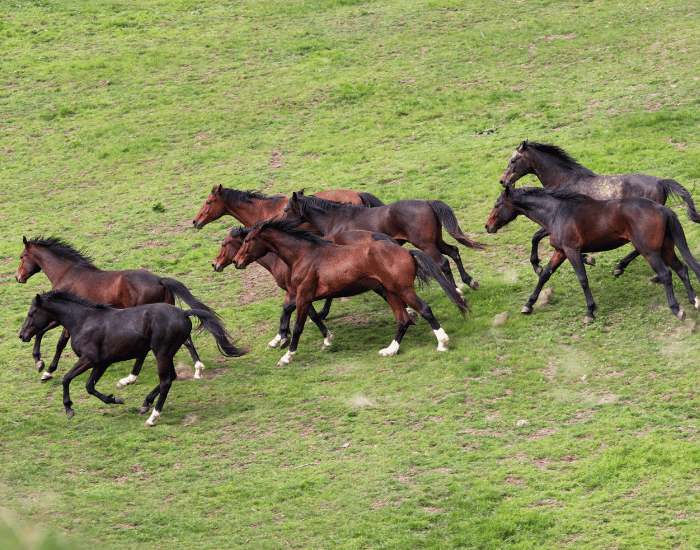
If you’re passionate about horses and seeking a fulfilling career in the equine industry, a stud hands job might be exactly what you’re looking for. The role of a stud hand is integral to the success of any breeding operation, playing a crucial role in the care and management of horses, particularly during the breeding season. But what exactly does a stud hand do, and why might this career path be the right fit for you?
Understanding the Role of a Stud Hand
A stud hand, also known as a stable hand or horse groom, works primarily in breeding studs or farms where horses are bred. These professionals are responsible for the day-to-day care and maintenance of the horses, ensuring their health and well-being. The role is physically demanding but offers the reward of working closely with some of the most magnificent animals on the planet.
Daily Responsibilities of a Stud Hand
The duties of a stud hand can vary depending on the size of the operation and the specific needs of the horses in their care. However, some of the common tasks include:
- Feeding and Watering: Stud hands are responsible for preparing and providing feed and water to the horses, ensuring that each animal’s dietary needs are met. This includes measuring out feed, adding supplements as needed, and monitoring the horses’ water intake.
- Grooming: Regular grooming is essential for maintaining a horse’s coat, hooves, and overall health. Stud hands brush the horses, clean their hooves, and check for any signs of injury or illness. Grooming also helps in building a bond between the horse and the handler.
- Mucking Out Stalls: A significant part of the job involves mucking out stalls, which means removing soiled bedding and replacing it with fresh straw or shavings. Clean stalls are crucial for preventing disease and ensuring the comfort of the horses.
- Exercising the Horses: Depending on the breeding farm’s setup, stud hands may be involved in exercising the horses. This can include hand-walking, lunging, or even riding the horses to ensure they maintain good physical condition.
- Handling Mares and Foals: During the breeding season, stud hands often assist with handling mares and foals. This can involve helping with foalings, handling newborns, and ensuring that both mare and foal are healthy and thriving.
- Assisting with Veterinary Care: Stud hands may also assist veterinarians during routine check-ups or emergencies. This could involve holding horses during treatments, administering medication, or monitoring the horses’ recovery.
- Maintenance of Equipment and Facilities: Keeping the equipment and facilities in good working order is another important aspect of the job. Stud hands may be responsible for cleaning tack, repairing fences, and ensuring that the barn and surrounding areas are well-maintained.
Specialized Roles Within Stud Hand Jobs
While the general duties of a stud hand are consistent across most breeding operations, some stud hands may take on specialized roles depending on their experience and the needs of the farm. These can include:
- Foaling Attendant: A stud hand with experience in foaling may be tasked with overseeing pregnant mares and assisting with the birthing process. This role requires a deep understanding of equine reproduction and the ability to respond quickly to any complications.
- Breeding Technician: In some operations, stud hands may assist with the breeding process, including handling stallions, collecting semen, and preparing mares for insemination. This role requires specialized training and knowledge of equine reproductive techniques.
- Young Horse Handler: Stud hands may also work specifically with young horses, helping to socialize and train them. This involves introducing foals to basic handling, leading, and grooming, setting the foundation for their future training.
The Skills and Qualities of a Successful Stud Hand
Working as a stud hand is not for everyone. The role requires a combination of physical stamina, equine knowledge, and a deep passion for horses. Some of the key skills and qualities that are essential for success in this role include:
- Physical Fitness: The job is physically demanding, involving long hours of standing, walking, lifting, and bending. A good level of physical fitness is essential to handle the daily tasks efficiently.
- Attention to Detail: Stud hands need to be vigilant in monitoring the horses for any signs of illness or injury. Attention to detail is crucial in spotting problems early and ensuring that the horses receive the care they need.
- Communication Skills: Working in a breeding operation often involves teamwork. Good communication skills are necessary to coordinate with other staff members, veterinarians, and managers.
- Patience and Calmness: Horses can be unpredictable, especially during breeding season. A successful stud hand remains calm under pressure and has the patience to handle horses gently and effectively.
- Passion for Horses: Perhaps the most important quality is a genuine love for horses. This passion drives stud hands to go above and beyond in their care and ensures that they are motivated to provide the best possible environment for the horses.
The Path to Becoming a Stud Hand
For those interested in pursuing a career as a stud hand, there are several pathways to entry. While formal education is not always required, gaining experience and qualifications can significantly enhance job prospects.
Gaining Experience
One of the best ways to start a career as a stud hand is to gain hands-on experience. Many people begin by working as general stable hands or grooms, learning the basics of horse care and management. Volunteering at stables or horse rescues can also provide valuable experience.
Training and Qualifications
While not always mandatory, completing equine-related courses can be beneficial. Certificates or diplomas in equine studies, horse care, or animal husbandry are available through various educational institutions. These programs cover topics such as equine anatomy, nutrition, and health care, providing a solid foundation for a career in the industry.
Finding Job Opportunities
Job opportunities for stud hands can be found through various channels. Websites like equinestaff.com.au specialize in listing job openings in the equine industry, including stud hand positions. Networking within the industry, attending horse shows, and joining equine associations can also help in finding job opportunities.
Career Progression
Starting as a stud hand can open the door to various career advancements within the equine industry. With experience, stud hands can move into more specialized roles, such as breeding technicians, stable managers, or even farm managers. Continuing education and gaining additional qualifications can further enhance career prospects.
Conclusion: Is a Stud Hand Job Right for You?
A career as a stud hand offers the opportunity to work closely with horses, playing a vital role in their care and the success of breeding operations. While the job is physically demanding and requires a significant commitment, it is incredibly rewarding for those with a passion for horses.
If you’re considering a stud hand job, take the time to gain experience, develop your skills, and explore the various opportunities available in the equine industry. Whether you’re looking to start your career or make a change, the role of a stud hand could be the perfect fit for you. For more information on job opportunities and career advice, websites like equinestaff.com.au are invaluable resources.
By embracing the challenges and rewards of working as a stud hand, you’ll be embarking on a career that is as fulfilling as it is essential to the world of equine breeding.


